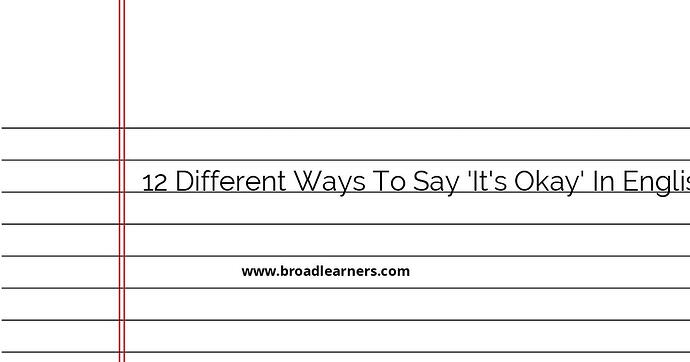When someone apologizes or expresses concern, responding with 'it's okay' is a common way to reassure them.
However, using the same phrase repeatedly may feel monotonous and less impactful over time. To keep your responses fresh and varied, consider the following alternatives:
- No worries
- It's all good
- Don't mention it
- Not a problem
- Don't sweat it
- That's fine
- No biggie
- Forget about it
- All is forgiven
- No need to apologize
- It happens
- I understand
Let's explore some examples to see how these phrases can be used effectively:
1. No Worries
When someone apologizes for a minor inconvenience, you can respond with 'No worries' to reassure them that it's not a big deal.
Example:
Person A: I'm sorry I'm running late.
Person B: No worries, take your time.
2. It's All Good
'It's all good' is a casual way of saying that everything is fine and there's no harm done.
Example:
Person A: I accidentally spilled my drink.
Person B: It's all good, accidents happen.
3. Don't Mention It
Use 'Don't mention it' to downplay someone's apologies and show that their actions are not a big deal.
Example:
Person A: I hope I didn't bother you with my questions.
Person B: Don't mention it, I'm happy to help.
By incorporating these alternatives into your conversations, you can vary your responses while still conveying understanding and reassurance.
Did I miss anything? Respond below
